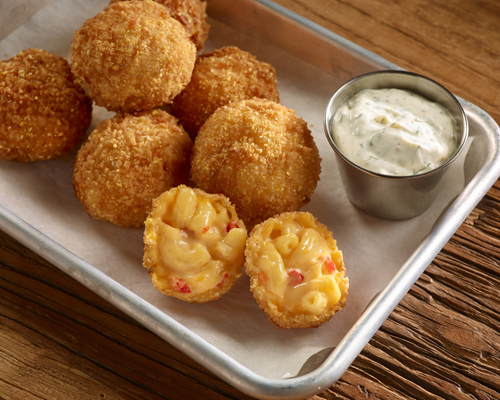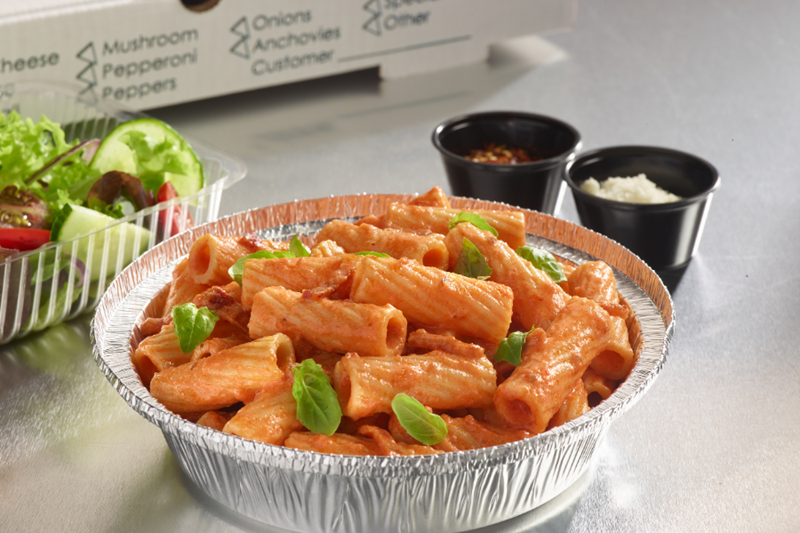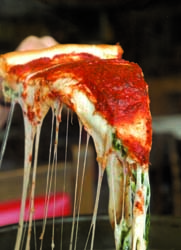Why is it that some operators never seem to leave the kitchen, are afraid to take a vacation and consider overtime a way of life? Why is it that some operators seem to have that “Midas touch”? Why have some bought a business while others have bought a job? Let’s take a look at some successful operators today and see what they may have in common. How do they survive and prosper, even in tough economic times? These are the operators who no longer work 80 hours a week as a cook, manager and driver. They have harnessed their passion for pizza and wisely applied what they have learned, turning knowledge into profits.
Dan Collier of California-based Rusty’s Pizza Parlors applied the advice his former employer imparted to him. According to Collier, “Rusty’s founder, Rodger Duncan, always stressed to me the importance of weekly numbers inventory, cost analysis, weekly profit and loss.” Collier now can measure financial performance weekly and make immediate adjustments. Applying things learned over his 25-year career in the pizza industry has brought Collier success. He now owns four locations and sales have gone from $400,000 to $5 million per year.
April Murray and her husband, Mark, own and operate Just Pizza in Mebane, North Carolina. The pizzeria was started more than 20 years ago by April’s parents. “The one thing I have learned over the years that has made a significant difference in my business is that building those strong customer relationships really matters,” Murray says. “I learned this from my parents, who always made each customer feel special and let them know with a
huge ‘thanks’ to come back to see us each time they picked up. It leaves a broad range of possibilities to apply to your business, everything from a handwritten thank you on a breadstick box with a Sharpie to thank you notes for party orders, to cards each season. It’s the personal touches that matter most and let your customers know that they are important.” Just Pizza has since franchised and expanded to three locations.
Learning is directly tied to meekness. Meekness is an elusive virtue that few can accurately define. Most definitions are vague on its meaning, and many people equate it to weakness. Dictionaries generally define “meek” as gentle, moderate, submissive, quiet and even timid; however, the original Greek word means much more. “There is gentleness” in that word, observes William Barclay’s New Testament Wordbook, “but behind the gentleness there is the strength of steel.” The original definition of meekness shows a mental disposition that enables one to endure injury with patience and without haughtiness or vanity. One does not insist on going by his own views or by popular opinion. One is teachable, willing to be taught.
Tony Disilvestro, co-owner of Ynot Pizza, a twounit operation in Virginia Beach, Virginia, states: “One thing that has impacted my business would be attending the International Pizza Expo for the last 16 years. We as a company have returned every year with an idea or a product that has improved our business. The Expo has made it easy to fi nd a product or service and compare it to the competition all in one place.” Ynot’s openness to learn at Expo has led to a new avenue of revenue for them — take and bake. It has also given them the tools they need to take them to the next level — franchising.
Glenn Cybulski came to Pizza Expo in 2007 hoping to close a deal on a POS system he had already decided on. Cybulski attended an early morning marketing seminar and questioned the panelists on their POS capabilities. What he learned sent him to the show fl oor to compare the systems. Cybulski put away his preconceived notions and objectively looked at the systems, bearing in mind the advice of the panelists. Two years later, Cybulski says: “The smartest business decision I have made was to purchase (the panelist recommended) POS system. From the ability to track my inventory, sales and manage my customer base, the POS system has improved my profi tability in many ways. I use this POS in all of my stores.” Cybulski is now the franchisor of California-based Fregene’s Pizza.
Reading is not only fundamental, but it is instrumental in building your business. Addam Oliver, independent operator of Bernie O’s Pizza in North Muskegon, Michigan, testifies to that. “I have a copy of an article that Big Dave wrote for Pizza Today titled “EO to CEO” taped to my desk that I read once a week,” he says. Oliver attributes his doubledigit growth since he opened three years ago to applying the mindset of this article. Oliver learned that to be truly successful he needed to focus on the three main areas of business: marketing, training and finance.
Shawn Randazzo of Detroit’s Cloverleaf Pizza agrees: “In my 14 years in this business, the single most significant thing I learned to do with my business was working more on my business rather than in it. The transition from a stressful, sweaty 70-hour work week took some time, and is continuous.” A combination of trade shows, industry magazines, consultants, books, and several successful individuals within our industry taught Randazzo and Oliver this important principle. Randozzo adds: “I will be honest, though. Once you start the transition, you will learn a ton from and about yourself — don’t be afraid to change the way you think.”
The forward-thinking entrepreneurs behind Columbus-based Mama Mimi’s Take ’N Bake Pizza have found pearls of wisdom in networking with their peers through trade shows, restaurant associations and Internet forums. When Jeff and Jodi Aufdencamp began nine years ago, the take-and-bake concept was virtually unheard of. The key to their success was listening to others. “It was more ‘big picture’ thinking, as with everything in our business,” says Jodi. “A friend of ours knew the president of an e-mail marketing company. We definitely trusted them from the beginning, because they were recommended by a friend. Networking is such an important part of operating a growing business. “We now get three times the return on the e-mail offers compared to direct mail or other print. It goes directly to an eager and waiting audience that already believes in the product. We have grown with the e-mail company and built a great relationship that allows us to send out creative and innovative e-mails with ease.” Mama Mimi’s now has four corporate stores and is opening three franchise stores this fall.
Marcel Bouley of Engine No. 6 Pizza Company in Norwich, Connecticut, watches the competition and asks, “What makes them so successful?” Consistency and good service are the typical answers. Bouley notes that even restaurants with a mediocre product can be successful by offering good service along with a consistent product. Engine No. 6 Pizza Company caters to gluten-free diets and other health concerns, so inconsistency is not an option. “I train my staff to focus on being service-oriented and producing a consistent product,” adds Bouley. “The effects have been that I have been in business for over 23 years and I no longer have to work nights and weekends.”
This industry offers many opportunities to take in accurate knowledge that can make your business successful. The operators mentioned in this article saw success because they possessed the quality of meekness. They were not afraid of being wrong or corrected. They yearned to learn and grow as people and as operators, even if that meant change. The school of life is always in session. Cultivating the quality of meekness is an ongoing process, challenging our human nature. Fate does not separate the winners from the losers — willingness to be taught does. You turn your passion to profi ts when you realize that learning truly is earning. 09.09.09



